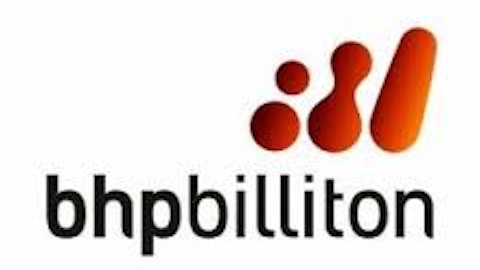BBL & BHP: Dividend Withholding Tax Info
BHP Billiton (the company) trades under two different stock tickers: BHP and BBL.
– BHP is based in Australia
– BBL is based in the United Kingdom
BBL is the preferable investment for United States investors.
Here’s why. Australia has a dividend withholding tax on United States investors. The United Kingdom does not.
BBL is the preferable investment if you want your dividend income coming to you instead of to a government.
The Australian shares offer something called a ‘franking credit’. This term is likely unfamiliar to United States investors. Franking credits allow for tax deductions from other investment income generated in Australia. Franking credits are worthless, unless you have significant Australian investment income.
Tax issues matter. What matters far more is whether BHP Billiton will cut its dividend soon.
Likelihood of BHP Cutting Its Dividend
For a company to pay steady or rising dividends it must have:
1. The ability to pay the dividend
2. A management willing to do so
The oil and gas super majors are in a similar situation. Click here to see how the 6 oil and gas super majors are handling their dividend policies.
BHP Billiton’s operations are struggling. The company no longer has the ability to pay its dividend from current earnings because of commodity price declines.
– BBL has $1.28 in earnings-per-share
– BBL pays $2.48 in dividends per share
Results are expected to be worse in 2016 than 2015, assuming commodity prices don’t surge. As a result the company will have to weaken its balance sheet to pay its dividend.
The company has $2.33 in cash per share. This is not enough to cover the dividend for even one full year.
BHP’s management will have to raise debt to fund its dividend.
The question is, will BHP’s management prioritize its balance sheet or its dividend?
BHP Billiton Chairman Jac Nasser was very clear on the subject. Here’s what he said in the company’s November 2015 General Meeting (emphasis added):
“I thought it would be helpful to address questions which the Board and management have received about our dividend.
As I said at the London AGM, the dividend is an outcome of appropriate capital management. Our starting point is to maintain the strength of the balance sheet through the cycle. The balance sheet must always come first.
As you would expect, and has always been the case, your Board reviews the level of dividend on a regular basis. It does this against the background of the external environment, our progress on capital and operating productivity and the need to invest to ensure profitable long-term growth.”
There should be no confusion about what management prioritizes after reading the quote above. The balance sheet comes first. BHP Billiton will cut its dividend before it damages its balance sheet.
On February 1st S&P lowered BHP Billiton’s credit rating from A+ to A. The company has been placed on a credit watch.
Reducing or eliminating the company’s dividend payments would likely prevent further credit downgrades.
BHP Billiton is under pressure to reduce or eliminate its dividend. I believe it is extremely likely the company cuts its dividend based on management’s comments.
I expect the dividend cut announcement to come on February 23rd. This is when the company releases its interim results.
Final Thoughts
BHP Billiton plc (ADR) (NYSE:BBL) is deeply undervalued relative to its long-term earnings power. The metal and energy price collapse has temporarily slashed BHP Billiton’s earnings.
Patient value investors will likely do well to purchase BHP Billiton at current prices.
Investors seeking reliable dividend income should stay away from BHP Billiton. The company is very likely to cut its dividend in the near future.
The company does not rank well using The 8 Rules of Dividend Investing because of its high volatility and unsustainable payout ratio.
Disclosure: None




